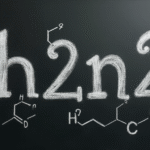Industry Pushes Back Against WHO’s Stricter Alcohol Regulations
The global alcohol industry, valued at $1 trillion, is pushing back against the World Health Organization (WHO) as it takes a firmer stance that no level of alcohol consumption is risk-free. According to letters and emails obtained by Reuters, the Belgian brewing industry, Mexican tequila manufacturers, and Heineken (HEIN.AS) have pressured governments this summer to oppose the WHO’s proposal for stricter alcohol regulations.
WHO’s Stance on Alcohol Consumption and Health Risks
The WHO and other health authorities assert that even small amounts of alcohol consumption are linked to a higher risk of certain cancers and other diseases. Dag Rekve, the WHO’s technical policy head, told Reuters that these health risks are “consistent and well-documented” at a population level.
However, alcohol producers argue that the science is more nuanced and demonstrates that moderate drinking poses little risk. Julian Braithwaite, the International Alliance for Responsible Drinking (IARD) director general, stated that the sector aims to “regain control of the alcohol debate.”
Industry’s Efforts to Counter Health Authorities’ Message
As consumers become increasingly health-conscious and face economic challenges, reducing alcohol consumption impacts company profits. The industry is intensifying its efforts to avoid new threats, including increasing funding for the IARD to play a more active role in alcohol-related scientific debates and counter health authorities’ messages.
New UN-Backed Agreement Softens Alcohol Measures
The WHO and other health authorities claim that alcohol consumption, sometimes even in small amounts, is linked to a higher risk of certain cancers and other diseases. A new UN-backed agreement, set for country adoption on September 25, aims to combat non-communicable diseases, some of which are alcohol-related.
The WHO’s proposed alcohol control measures were present in the initial draft published in May. However, a September version showed that these measures had been removed or weakened.
The WHO acknowledged last week that the process was affected by intense pressures, including those from the alcohol industry. A letter obtained by Reuters shows that in May, shortly after the initial draft was made public, the Mexican National Chamber of Tequila Producers (CNIT) contacted the Mexican government.
The CNIT urged Mexican authorities to use ongoing conversations with other governments to eliminate references to OMS-backed measures, including commitments to increase alcohol taxes and restrict availability in stores. These proposals were later softened in the September draft to suggest countries “consider” raising alcohol taxes “according to national circumstances” and “consider” availability measures.
Another letter sent to the Mexican government on behalf of Dutch alcohol giant Heineken suggested changing the proposal to focus on restricting alcohol advertising aimed at minors instead of banning or restricting it.
The proposal to limit alcohol advertising was removed from the September agreement version.
Meanwhile, the Belgian Brewers association wrote to Belgium’s vice prime minister’s office in June, complaining that the country’s health minister was adopting “radical stances” regarding the WHO text, according to an email accessed by Reuters.
The industry group highlighted attempts to alter a reference on reducing the impact of harmful consumption, such as alcohol addiction, in a communication referring to all types of beverages.
Key Questions and Answers
- What is the main issue between the alcohol industry and WHO? The alcohol industry challenges the WHO’s stance that no level of alcohol consumption is risk-free.
- What specific actions has the alcohol industry taken against WHO’s proposal? The Belgian brewing industry, Mexican tequila manufacturers, and Heineken have pressured governments to oppose the WHO’s proposal for stricter alcohol regulations.
- What is the new UN-backed agreement about? The agreement aims to combat non-communicable diseases, some of which are alcohol-related.
- How have the WHO’s proposed alcohol control measures changed? The initial draft contained stricter measures, but a September version showed that these measures had been removed or weakened.
- What specific changes did the alcohol industry push for in the UN-backed agreement? The industry pushed for softening measures like eliminating references to increasing alcohol taxes and restricting availability in stores, as well as changing the proposal on alcohol advertising.






